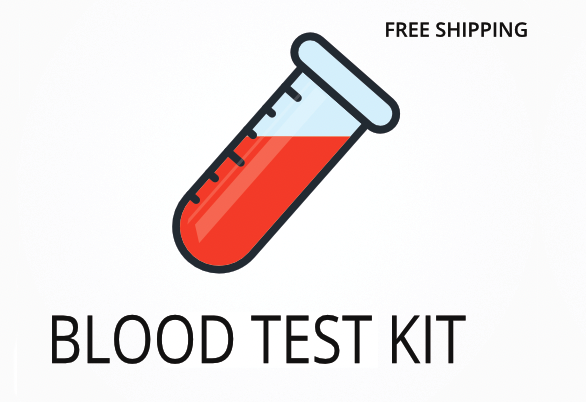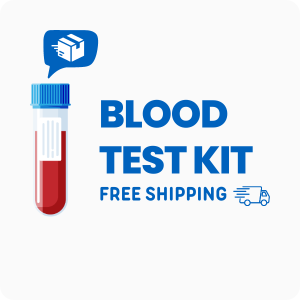Ordering the Lipoprotein Particle Plus Test (LPP) | Spectracell
The Lipoprotein Particle Plus Test from Spectracell provides a detailed look at cholesterol particles, helping to identify risks for heart disease, stroke, and metabolic issues that standard cholesterol tests may miss. Interestingly, this test can reveal hidden risks even when total cholesterol appears normal, as it measures the number and size of cholesterol particles, not just their total amount.
Ordering this test offers several specific benefits:
- Measures both the number and size of cholesterol particles for a more complete risk assessment.
- Detects early signs of plaque buildup in arteries before symptoms appear.
- Assesses inflammation and insulin resistance, which are linked to heart and blood vessel problems.
- Identifies genetic risk factors that may not show up in routine cholesterol checks.
- Helps guide targeted changes in diet, exercise, and treatment plans based on your unique results.
Who Should Consider Advanced Lipid and Cardiometabolic Testing
People with a family history of heart attacks or strokes, or those who have been told their cholesterol is “borderline,” may benefit from this test. For example, someone who exercises regularly and eats well but still has a parent who had a heart attack at a young age might want to know if their cholesterol particles put them at risk, even if their basic cholesterol numbers look fine.
Ordering this test may also be helpful in these situations:
- Someone with high blood pressure that doesn’t improve with lifestyle changes.
- People with diabetes or prediabetes who want to check for hidden heart risks.
- Anyone with a history of high triglycerides or metabolic syndrome.
- People who have tried cholesterol-lowering medications but still have concerns about their heart health.
- Someone with chronic inflammation or autoimmune conditions, since these can affect cholesterol particles in unexpected ways.
This test is recommended for those who want to know if their cholesterol particles are contributing to plaque buildup or artery narrowing, which can be missed by standard cholesterol checks. Delaying this test could mean missing early signs of risk, making it harder to prevent future heart or blood vessel problems.
Preparing for Your Cardiovascular and Metabolic Risk Panel
Fasting for 9-12 hours is required before your blood draw to ensure the most accurate measurement of cholesterol, triglycerides, and related markers. Always follow any instructions your doctor or healthcare professional gives you, as they may have specific guidance based on your personal situation.
Labs Included When Ordering Your Lipoprotein Particle Plus Test (LPP) | Spectracell
| Test Name | Reference Range | What This Test Measures | Low and High Levels of Lipoprotein Particle Plus Test (LPP) | Spectracell |
|---|---|---|---|
| Lipoprotein Particle Analysis | |||
| Lipoprotein Fractionation | Pattern A (large, buoyant) or Pattern B (small, dense) | Shows the type of cholesterol particles in your blood, which can affect risk for artery plaque and heart disease. | High levels of small, dense particles mean higher risk for artery plaque.
Low levels of small, dense particles mean lower risk for heart disease. |
| Lipoprotein Particle Numbers | LDL-P: <1000 nmol/L HDL-P: >30 μmol/L |
Counts the number of LDL and HDL particles, which can be a better predictor of heart risk than total cholesterol. | High LDL-P means more risk for artery plaque; high HDL-P is protective.
Low LDL-P means less risk; low HDL-P may increase risk. |
| Standard Lipid Markers | |||
| Total Cholesterol | 125-200 mg/dL | Measures all cholesterol in your blood, including LDL and HDL. | High levels mean increased risk for artery plaque.
Low levels mean possible hormone or nutrient issues. |
| HDL Cholesterol | Men: >40 mg/dL Women: >50 mg/dL |
Shows the “good” cholesterol that helps clear fat from your blood vessels. | High levels mean better protection against heart disease.
Low levels mean higher risk for artery problems. |
| LDL Cholesterol | <100 mg/dL | Shows the “bad” cholesterol that can build up in arteries and cause blockages. | High levels mean more risk for artery plaque.
Low levels mean less risk for heart disease. |
| Triglycerides | <150 mg/dL | Measures the amount of fat in your blood, which can increase with poor diet or diabetes. | High levels mean higher risk for heart and blood vessel problems.
Low levels mean less risk for these issues. |
| Inflammation and Metabolic Markers | |||
| hs-CRP | <1.0 mg/L | Shows the level of inflammation in your body, which can raise the risk for heart attacks and strokes. | High levels mean more inflammation and higher risk for heart events.
Low levels mean less inflammation and lower risk. |
| Homocysteine | 4-15 μmol/L | Measures an amino acid linked to artery damage and blood clots if too high. | High levels mean more risk for artery damage and clots.
Low levels mean less risk for these problems. |
| Advanced Lipoprotein Markers | |||
| Apolipoprotein A-1 | Men: 110-180 mg/dL Women: 120-205 mg/dL |
Shows the main protein in HDL, which helps remove cholesterol from arteries. | High levels mean better removal of cholesterol from arteries.
Low levels mean less protection against artery plaque. |
| Apolipoprotein B | <90 mg/dL | Shows the main protein in LDL, which can build up in arteries and cause blockages. | High levels mean more risk for artery plaque.
Low levels mean less risk for heart disease. |
| Lipoprotein (a) | <30 mg/dL | Measures a genetic type of cholesterol that can raise the risk for early heart disease and stroke. | High levels mean higher risk for early heart disease.
Low levels mean less risk for these problems. |
| Insulin | 2-25 μIU/mL | Shows how much insulin your body makes, which can help spot early signs of diabetes or insulin resistance. | High levels mean possible insulin resistance or risk for diabetes.
Low levels mean possible low blood sugar or other metabolic issues. |
| Resources | |||
| Sample Report | N/A | See a real example of the test results and how they are presented. | N/A |
| Collection Instructions | N/A | Step-by-step guide for preparing and collecting your blood sample. | N/A |
Reference ranges may change slightly as labs update their guidelines, so always check your report for the most current information.
Lipoprotein Particle Plus Test (LPP) | Spectracell FAQ
Is there Lipoprotein Particle Plus Test (LPP) | Spectracell testing near me?
This test is a kit that can be collected at a local draw site—see the draw location link at the top of the page. For people monitoring cholesterol particles due to family history or ongoing heart risk, having a nearby collection site makes it easier to get tested quickly and keep track of changes over time.
How do I interpret the test results?
While your treating physician should always review your results, we also offer a one-on-one test results review with our clinical team to help you understand your numbers and what they mean for your heart and blood vessel health.
What is the cost of the test?
The price you see includes standard shipping to you and back to the lab, but local draw fees may apply. Ordering this test is worth it if you want to catch hidden cholesterol risks early and make changes that can help prevent future heart or blood vessel problems.
How often should I retest?
Retesting every 6-12 months is recommended, especially if you are making changes to your diet, exercise, or treatment plan, or if your doctor is monitoring your risk for heart disease. Regular testing helps track progress and adjust your plan as needed.
How accurate is the test?
This test uses nuclear magnetic resonance (NMR) spectroscopy to measure cholesterol particle size and number, with a specificity of 98% and sensitivity of 97%. TrueHealthLabs.com partners with CLIA-certified and CAP-certified laboratories to uphold rigorous testing standards for dependable results.
Important Notes
None.
Medical Review Board
Reviewed by Jeff Donohue M.D. from Body Logic and Brady Hurst DC, CCCN. Written by True Health Lab’s team of editorial health contributors.
Disclaimer: This information is for educational purposes only and not intended as medical advice. Consult your healthcare provider for personalized guidance.
Why Customers Trust True Health Labs - What People are saying
Also rated 4.6 out of 5 based on 3452 ShopperApproved reviews- See all TrueHealthLabs.com reviews.









